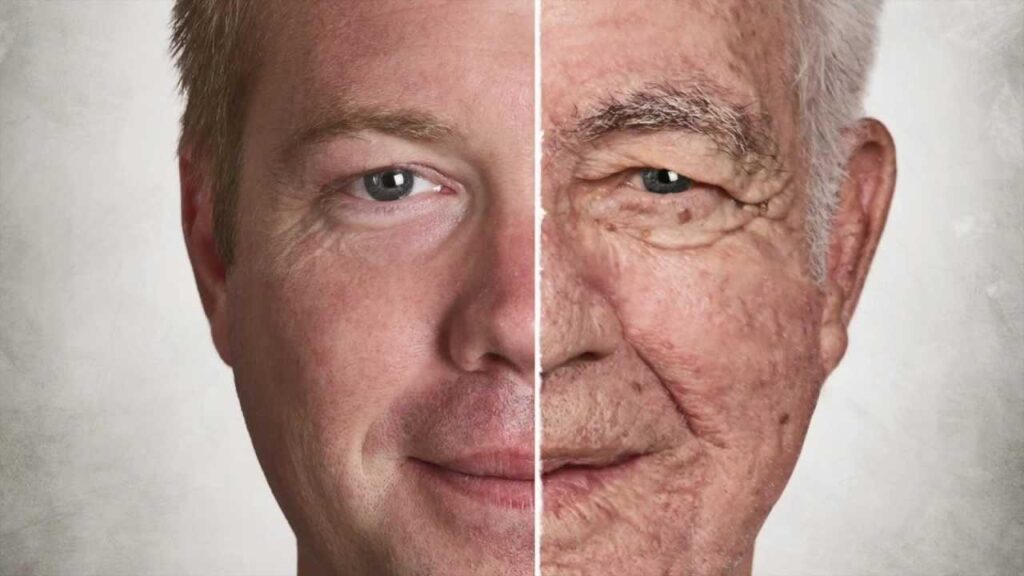aging is an certain part of life, a journey that every human embarks upon. Yet, as we witness advancements in science and medicine, the conversation around aging has shifted from mere acceptance too exploration. what if we could not only understand the biological processes behind aging but also find ways to slow it’s relentless march? In this article, we delve into the latest scientific insights and research breakthroughs that illuminate the complexities of aging. From the role of genetics and cellular health to lifestyle choices and innovative therapies, we will uncover actionable strategies that not only enhance longevity but also improve the quality of life as we age. Join us as we explore the fascinating science of aging and the steps we can take to embrace each decade with vitality and purpose.
Table of Contents
- Understanding the Biological Mechanisms of Aging
- Lifestyle Factors That Influence the Aging Process
- Nutritional Strategies for Promoting Longevity
- Emerging Technologies in anti-Aging Research
- In retrospect
Understanding the Biological Mechanisms of Aging
Aging is a complex biological process influenced by various intertwined mechanisms. One prominent factor is telomere shortening, which occurs at the ends of chromosomes with each cell division. As telomeres shorten, cells lose their ability to divide and regenerate, leading to age-related diseases. Additionally, oxidative stress plays a critical role, as the accumulation of free radicals can damage cells and tissues over time. Other key mechanisms include:
- Cellular senescence: Irreversible cell cycle arrest that contributes to tissue dysfunction.
- Mitochondrial dysfunction: Impaired energy production affects cellular metabolism and increases oxidative stress.
- Epigenetic changes: Modifications in gene expression can lead to altered cellular functions associated with aging.
Understanding these biological mechanisms opens the door to potential interventions that could slow the aging process. For instance, caloric restriction has been shown to enhance lifespan in various organisms by reducing metabolic strain and delaying the onset of age-related diseases. Furthermore, research into stem cell therapies and senolytics, compounds that selectively target and eliminate senescent cells, shows promise in rejuvenating tissues and restoring function. This multifaceted approach to addressing the biological underpinnings of aging highlights the importance of continued research for future health advancements.
Lifestyle Factors That Influence the Aging Process
The aging process is influenced by a multitude of lifestyle factors, which can either accelerate or decelerate the effects of time on our bodies.dietary habits, as an example, play a crucial role in determining how well our bodies age. A balanced diet rich in antioxidants, healthy fats, and essential nutrients can help combat oxidative stress and inflammation, key contributors to aging. Additionally, regular physical activity is associated with slower aging due to its ability to enhance cardiovascular health, maintain muscle mass, and improve mental well-being.
Moreover, sleep quality is another significant factor that can directly impact the aging process. Studies have shown that individuals who prioritize restorative sleep tend to have better skin elasticity and cognitive function as thay age. Stress management is equally crucial; chronic stress can lead to increased levels of cortisol, which has been linked to various health issues and premature aging. Embracing mindfulness techniques and fostering strong social connections can mitigate stress and promote a healthier aging experience.
Nutritional Strategies for Promoting Longevity
To enhance longevity, it’s crucial to adopt a well-rounded nutritional approach that focuses on whole foods rich in essential nutrients. prioritizing a diet abundant in fruits, vegetables, and whole grains provides the body with antioxidants and anti-inflammatory compounds that combat oxidative stress—one of the key contributors to aging.Additionally, incorporating healthy fats from sources like avocados, nuts, and olive oil can support heart health while maintaining cognitive function.Proteins derived from plant sources, such as legumes and quinoa, not only offer essential amino acids but also promote satiety, making it easier to maintain a healthy weight.
Another vital component of a longevity-promoting diet is mindful eating.Engaging in practices such as intermittent fasting or simply reducing meal sizes can enhance metabolic flexibility and encourage cellular repair mechanisms. It’s equally important to limit the intake of processed foods and refined sugars, as these can lead to chronic inflammation and a host of age-related diseases. By embracing a nutritional strategy that emphasizes whole, nutrient-dense foods and mindful consumption, individuals can considerably improve their chances of leading a longer, healthier life.
Emerging Technologies in Anti-Aging Research
the realm of anti-aging research is witnessing revolutionary advancements fueled by cutting-edge technologies. One of the forefront innovations, CRISPR-Cas9, has gained traction for its ability to edit genes with precision, offering potential pathways to eliminate age-related diseases. Alongside gene editing, cellular reprogramming techniques are redefining how we understand cellular aging by allowing scientists to revert mature cells to a more youthful state. Other noteworthy developments include advances in nanotechnology and biomaterials, which hold the promise of not only regenerating tissues but also enhancing the body’s innate healing processes.
Moreover, the utilization of artificial intelligence in aging research is proving to be a game-changer. Machine learning algorithms can analyze vast datasets to identify patterns related to aging that may escape human researchers, thereby accelerating discoveries in longevity biology. Additionally, the integration of wearable technologies enables continuous health monitoring, providing real-time insights into the aging process.As these tools evolve, the potential for personalized anti-aging therapies becomes increasingly feasible, making the quest for longevity more of a science than a fantasy.
In Retrospect
As we conclude our exploration of aging and the scientific insights that illuminate its complexities, it’s clear that our understanding of this inevitable journey is evolving. The research we’ve discussed not only deepens our comprehension of the biological processes at play but also offers tangible strategies to embrace longevity and vitality.
While aging is a natural part of life, the tools and insights we’ve uncovered empower us to approach it with knowlege and intention. By incorporating healthy lifestyle choices,remaining curious,and advocating for ongoing research,we can navigate the aging process more gracefully.
Ultimately,the quest to slow aging is not just about adding years to our lives but enhancing the quality of those years. As we continue to unravel the mysteries of aging, let’s stay informed, engaged, and proactive in our journeys. Together, we can redefine what it means to grow older, transforming a once daunting concept into an opportunity for growth and resilience. Thank you for joining us on this journey of understanding—hear’s to a future full of possibility!







